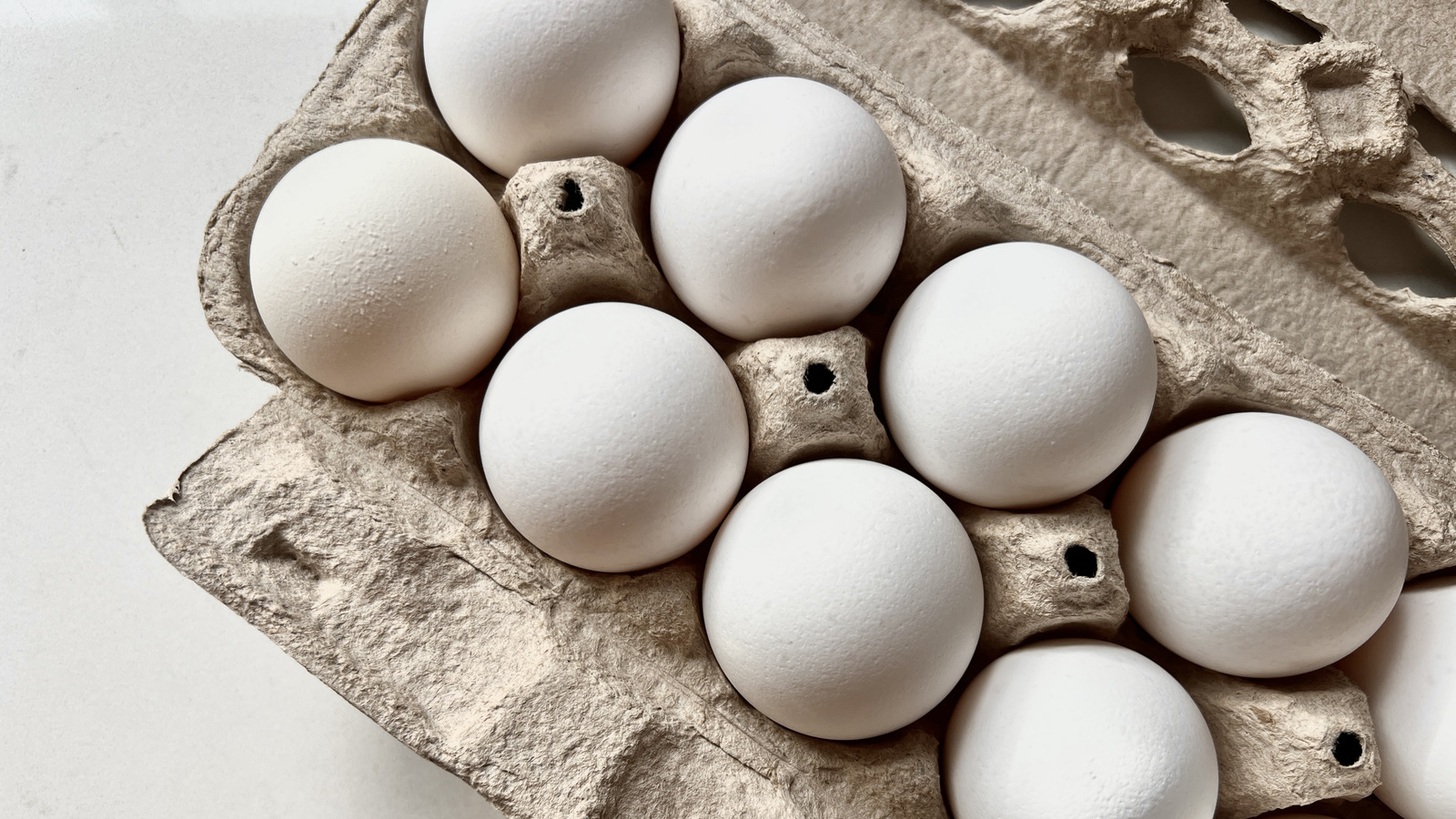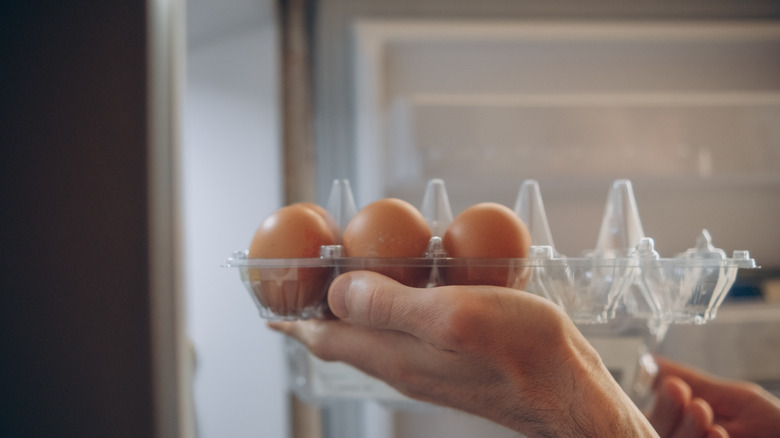Eggs are one of those staple ingredients that are hard to live without. Even amidst price hikes and stores implementing buying limits during supply shortages, shoppers will typically still buy a carton or two. While you might think that the eggs are fine to be ignored in their cartons until use, there’s actually a proper way to store them. To learn more, Food Republic spoke to Richard LaMarita, chef-instructor of Plant-Based Culinary Arts at The Institute of Culinary Education’s New York campus.
Ever notice how most eggs have a side that’s slightly more pointed? According to LaMarita, “In the egg, between the egg white and inner shell membrane is a small vacuum at the rounded, blunter end called the air cell. Storing the egg pointed side down ensures the air cell is situated at the top of the egg, which prevents the yolk from slipping downward and off-center.” By alleviating the pressure on the air pocket, you help preserve the yolk’s freshness and let it float atop the egg whites. Storing your eggs with the right side down also helps improve the taste, as it affects the thickness and texture of the egg whites — which is where more of the protein comes from. It’s all about preserving the inner construction of the egg for the freshest results when you crack it open. Note: if you’re still unsure of an egg’s freshness, you can also try the water test before storing in your fridge.
More expert-approved egg storage tips
There are other things to consider when storing eggs for maximum freshness, including how and where you place them in your fridge. According to Richard LaMarita, it’s best to keep eggs in their original containers, “which protects each egg in its own space.” While kitchen organization hacks may have you buying aesthetically pleasing roll-down dispensers, those don’t protect the eggs as well. LaMarita also shared that you should avoid storing your eggs in the refrigerator door — while it is a convenient place to grab an egg or two and go, the temperature fluctuates drastically, which can negatively impact your eggs over time. The expert also advised, “Keep them away from strong aromas or spiced foods as they can absorb aromas and even flavors while stored in the refrigerator.” The last thing you want is eggs that smell like onions being added to your cookie batter.
While we think of eggs as being mildly invincible as long as their shell is in tact, they will eventually spoil. As LaMarita shared, “eggs will get old, not to the point of going bad[,] but certainly losing their freshness — using them within three weeks is best.” It’s also important to note that store-bought eggs should always be refrigerated. Storage looks slightly different with farm-fresh eggs, but all of LaMarita’s care advice still stands. Keeping the eggs in a contained environment, free from temperature changes and excess movement or jostling, and making sure to store them point-side down will yield the freshest results.





